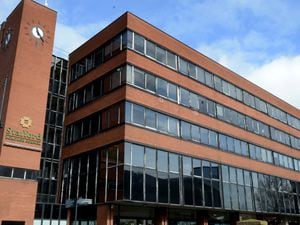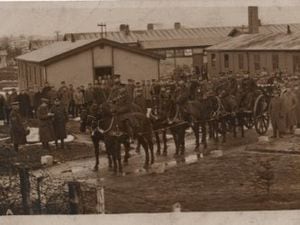Social divisions 'widening' in West Midlands
The West Midlands is one of the regions of the UK where most people feel the coronavirus pandemic has increased social divisions.

A study for PricewaterhouseCoopers found that whilst Covid-19 brought communities together to support the vulnerable, it has exacerbated inequalities.
Nationally 44 per cent of people feel it has increased social divisions since it started with the percentage for the West Midlands higher at 55.
After a year spent closer to home, the public wants housing, high streets, jobs and skills to top the levelling-up agenda, with housing a standout priority - 67 per cent of the West Midlands public surveyed say a focus on housing would be most effective in levelling up the country .
PwC’s Future of Government research, Rethinking Levelling-Up, surveyed 4,000 people across the UK.
While 38 per cent of those polled say their local community has become more important to them, and 39 per cent agree that the pandemic brought their community together, a greater number feel that it has increased social divisions.
The public feel a sense of geographical inequality, with 52 per cent of people feeling there is too much inequality in the UK and 47 per cent concerned about the inequalities between London and the rest of the UK.
Nationally, 39 per cent of people say their area has been treated fairly by central government in the pandemic.
This falls in the North West where only 29 per cent feel their area has been treated fairly but climbs as high as 45 per cent in the West Midlands and East of England.

Despite concerns around geographical inequality, the UK public are generally happy to recommend their area as a place to live, with more than half of those polled (62 per cent) willing to recommend their local areas to live in and raise a family, however, only 36 per cent would encourage anyone to start a business in their area.
People are most likely to recommend their area to live in Northern Ireland (69 per cent), the South West (68 per cent) and the East of England (67 per cent), with London and the West Midlands being less favourable at 57 per cent.
The best regions to start a business in the eyes of the general public are at either ends of England - the North East (42 per cent) and London (41 cent). It drops to 38 per cent in the West Midlands.
Divisions
Karen Finlayson, regional lead for government at PwC said: “The pandemic has brought neighbours together to support each other and the vulnerable, but this has been at a very local level.
"We should not underestimate the inequalities it has created socially and geographically.
"Covid-19 has introduced new divisions, such as those who are able to work from home and those who cannot, as well as reinforcing deep rooted ones, that will need to be addressed head on at a local level to deliver a fair recovery across the UK.
"While the public are most concerned about inequalities between London and the rest of the UK, ‘levelling up’ needs to go deeper and address the inequalities that exist within regions and between communities.”
Jobs and skills for the future are also a big focus for the West Midlands public, as 47 per cent would like to see levelling up focus on creating more better paid jobs and 49 per cent highlight investment in skills for the future.
While the pandemic has accelerated the move to online shopping, it has not diminished the importance of vibrant high streets and town centres for the public. 42 per cent of people surveyed in the West Midlands would like to see investment in town centres and high streets as a priority in levelling up inequalities.
Matthew Hammond, Midlands region leader at PwC, said: “Covid-19 has led people to refocus on what really matters to their everyday lives.
"‘Levelling up’ has become synonymous with big infrastructure projects including HS2, the economic impact of the Commonwealth Games and connectivity expenditure.
"The broader narrative in relation to levelling up in the eyes of localities and communities will need to be more tangible with visible investment in local places, jobs, skills and homes. A year of many people living and working at home has recalibrated what is of local and regional importance.
"Demonstrable gains for local communities in the short and medium term will be the turning point."





